Rob Bignell's Blog, page 320
October 4, 2014
Each word you write only yields more words that need to be written
When you 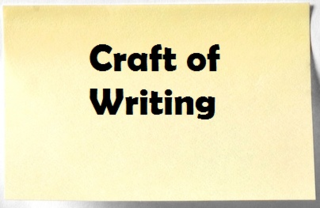 set down a road, you’re not limited to that one highway. There will be intersecting roads – some gravel, some narrow streets, others wide boulevards and multi-lane freeways – that in turn lead to many, many other roads. A few of these routes will be similar to the one you started out on, but most will offer new vistas, taking you either through woods or across suburban sprawl, either past farm fields or into cities of gleaming skyscrapers.
set down a road, you’re not limited to that one highway. There will be intersecting roads – some gravel, some narrow streets, others wide boulevards and multi-lane freeways – that in turn lead to many, many other roads. A few of these routes will be similar to the one you started out on, but most will offer new vistas, taking you either through woods or across suburban sprawl, either past farm fields or into cities of gleaming skyscrapers.
In much the same way, each sentence you write gives you the opportunity to take your book in an entirely new direction. No sentence should leave you wondering, “What will I write now?” but “Which sentence should I write next?”
Once you write a sentence, think of all the different ways it might be followed up. Consider the opening lines to this story: As Jane examined the dead man, there was a giggle.
The next line might describe the giggle. What did it sound like? Was it nervous and brief? Did it grow louder into a full-blown laugh?
Or maybe it describes Jane’s reaction to the giggle. Is she surprised by another person? Is she disgusted because she finds her friend’s reaction inappropriate?
Perhaps Jane herself is the one who giggled. Why did she giggle? Was she anxious? Maybe she feels delight that the man is dead and got what was due to him.
Possibly the dead man is the one that giggled. What does Jane do then? Is she frightened? Is she pleased that her experiment to revive the dead man worked? Maybe the dead man really isn’t a corpse at all but a fellow med student who is pretending to be dead during a class exercise.
Each of these potential paths in turn leads to hundreds of more possibilities for that third sentence and then the fourth. By the time you’ve written the fifth sentence, you’ve generated dozens of potential starts for you story…and even stories themselves.
You must begin, though, by writing one sentence. After all, you can’t explore the world about you unless you pull out of your driveway and set off down that first street.
Need an editor? Having your book, business document or academic paper proofread or edited before submitting it can prove invaluable. In an economic climate where you face heavy competition, your writing needs a second eye to give you the edge. Whether you come from a big city like Tampa, Florida, or a small town like Deadhorse, Alaska, I can provide that second eye.
<A HREF="http://ws-na.amazon-adsystem.com/widg... Widgets</A>Related articles
 What makes a person a 'writer'?
What makes a person a 'writer'? Create meaningful settings in your story
Create meaningful settings in your story
October 3, 2014
Use social media to market your book
Increasingly  we interact through social media, a catch-all term for various web-based and mobile technologies that allow the user to generate content (such as text, photos or video). You already probably use a variety of social media, such as Facebook, YouTube or blogs. Rather than rely solely on traditional media, such as newspapers and television, to get the word out about your book, consider also utilizing these alternative outlets. Indeed, the advantage of social media is that it allows people with similar interests to connect, share information, and discuss topics, meaning you can directly reach those potential readers who are most likely to buy your book.
we interact through social media, a catch-all term for various web-based and mobile technologies that allow the user to generate content (such as text, photos or video). You already probably use a variety of social media, such as Facebook, YouTube or blogs. Rather than rely solely on traditional media, such as newspapers and television, to get the word out about your book, consider also utilizing these alternative outlets. Indeed, the advantage of social media is that it allows people with similar interests to connect, share information, and discuss topics, meaning you can directly reach those potential readers who are most likely to buy your book.
Among the most popular social media platforms that you should exploit are:
n Blogs – These are a sort of personal journal published on the worldwide web. They can be on any subject with posts as frequent as daily to once every few weeks.
n YouTube – This is a website in which users can upload, view and share videos. The user uploading the video typically made it.
n Facebook – This social networking service allows members to post updates and photos about their lives and to carry on conversations in real time.
n Twitter – This networking service allows users to “microblog” or send out blog-like entries that are only 140 characters long. Often the “tweets” users send include links to longer entries.
n LinkedIn – Similar to Facebook, LinkedIn focus more on one’s profession and career rather than pure socializing.
As with our entire technological world, social media platforms constantly are rising and falling in popularity as new ones are developed. If this book is still around in a decade, most likely the above list of the most popular social platforms will be different. Still, these are the big shots for now, and in the steps ahead, we’ll examine how you can utilize these significant social media platforms to get out the word about your book.
Need an editor? Having your book, business document or academic paper proofread or edited before submitting it can prove invaluable. In an economic climate where you face heavy competition, your writing needs a second eye to give you the edge. Whether you come from a big city like Charlotte, North Carolina, or a small town like Butts, Georgia, I can provide that second eye.
Related articles
 Why you want reviews written about your book
Why you want reviews written about your book Write a winning blurb for your book's back cover
Write a winning blurb for your book's back cover Use YouTube to promote your book
Use YouTube to promote your book Use social media to market your book
Use social media to market your book Which social media is best to promote your book?
Which social media is best to promote your book?
October 1, 2014
A few letters: Disconsternation vs. consternation
There’s something  disconcerting about using these two words: Consternation doesn’t sound correct, yet disconsternation seems to mean the same thing.
disconcerting about using these two words: Consternation doesn’t sound correct, yet disconsternation seems to mean the same thing.
Consternation is a feeling of anxiety or dismay. To wit: Having grown up on a farm in Nebraska, I felt great consternation about moving to Los Angeles.
We add the prefix “dis” to a word to show a negative or reversal. For example, disrespect means to be rude to someone, which is the opposite of respect. So disconsternation logically should mean to alleviate anxiety or dismay.
Some writers try to use disconsternation to mean the same as consternation, however. That’s probably because they intend to say disconcerting, which means to worry or to perturb. Oh what a difference a few letters make!
Bottom line: Disconsternation is not a word; use consternation instead. If consternation sounds wrong, you probably mean disconcerting, so use that word instead.
Need an editor? Having your book, business document or academic paper proofread or edited before submitting it can prove invaluable. In an economic climate where you face heavy competition, your writing needs a second eye to give you the edge. Whether you come from a big city like Providence, Rhode Island, or a small town like Hygiene, Colorado, I can provide that second eye.
<A HREF="http://ws-na.amazon-adsystem.com/widg... Widgets</A>
Related articles
 How to get rid of Word's proofreading marks
How to get rid of Word's proofreading marks No worries: Nerve-racking vs. nerve-wracking
No worries: Nerve-racking vs. nerve-wracking
September 30, 2014
Write winning query letter to editors, agents
When 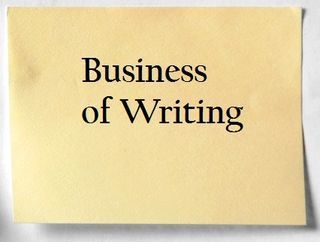 submitting your short story or article to a magazine or your novel or non-fiction book to a literary agent or publisher, you almost certainly will need to write a query letter. The goal of such a letter, also known as a query, is to pique the receiver’s interest so they’ll bother to read your work. That then could lead them to buying and publishing your writing.
submitting your short story or article to a magazine or your novel or non-fiction book to a literary agent or publisher, you almost certainly will need to write a query letter. The goal of such a letter, also known as a query, is to pique the receiver’s interest so they’ll bother to read your work. That then could lead them to buying and publishing your writing.
While query letters vary in format, good ones always contain five brief paragraphs in which you pitch your writing. These paragraphs are:
n Opening – In a single sentence, tell why you’re writing. For example, if pitching a novel to a literary agent, you might write: I am seeking representation for my novel “Windmill,” the story of the Steinar family on the western plains of Nebraska.
n Hook – The opening paragraph is like the back cover blurb for a book, a tagline that concisely summarizes the book to pique the reader’s interest. For example: For fifteen years, Carl Steinar and his sons, Peter and Lyle, have maintained a tenuous balance, keeping together their family and farm. Like blades in a well-oiled windmill, each works in harmony with the other - until Abbie Blaire, the new reporter in town comes to write a story about them, throwing a monkey wrench into their perfect machine: She is the spitting image of the wife and mother the Steinar men lost years ago.
n Synopsis – The second paragraph tells in a couple of sentences what the story is about. This is not simply a reiteration of the plot, though. For example: With Abbie Blaire’s arrival, the Steinar men find themselves on new trajectories in which their needs and goals can only collide. Resentment and jealousy between the brothers and with their father leads each to make difficult choices that can only lead to one of their deaths.
n Author’s bio – The third paragraph tells about you. Keep it related to your writing, specifically your credits, and if pitching non-fiction why you’re qualified to write this book. For example: Four of my short stories have been published, three in literary magazines and one in an anthology. Holding a master’s degree in English, for eight years I taught poetry and writing. I’m the award-winning author of several works of journalism and the author of two non-fiction books and a collection of poetry.
n Closing – You then would include a simple, single sentence asking the editor/agent/publisher if you may send them your work. To wit: Please let me know if you are interested in receiving a copy of “Windmill” for your further review.
There are some additional guidelines to follow when writing a query. First, be sure to write in formal business style. You are making a business proposition, after all, and you want to appear professional. Secondly, stick to a page. Anything more is too long. Remember that potential readers will have even less information to go on when deciding to purchase your book or read your story, so a page actually is a luxury for you. Finally, should you include a sample chapter (Some agents/editors/publishers oddly enough ask for this in their guidelines for query letters.) include a SASE if you want your manuscript returned.
Need an editor? Having your book, business document or academic paper proofread or edited before submitting it can prove invaluable. In an economic climate where you face heavy competition, your writing needs a second eye to give you the edge. Whether you come from a big city like Chicago, Illinois, or a small town like Humptulips, Washington, I can provide that second eye.
Related articles
 Reviewer gives editor's novel positive review
Reviewer gives editor's novel positive review Get a 'look inside' author's debut novel 'Windmill'
Get a 'look inside' author's debut novel 'Windmill'
Getting started with formatting your ebook
If you  have a completed manuscript, you actually should to format two ebooks – one for Kindle and one for Smashwords. This actually is less work than it sounds as you can format an ebook that will work for both Kindle and Smashwords.
have a completed manuscript, you actually should to format two ebooks – one for Kindle and one for Smashwords. This actually is less work than it sounds as you can format an ebook that will work for both Kindle and Smashwords.
Why create an ebook for these two retailers?
You’ll want to go with Kindle because it dominates the market. As of the beginning of 2014, about two out of three ebooks are sold on Kindle. Not going with Kindle is like selling your paper book in only 16 of the 50 states (at best). You’ll also want to use Smashwords so you have a version of your book available in Nook, iPad, Kobo or Sony Reader. Smashwords is a one-stop shop for accomplishing this and much easier than developing a separate ebook for each ereader device and uploading it at its respective company site. By uploading your ebook to both Kindle and Smashwords, you’ll reach about 98 percent of the ereader market in North America.
As Kindle is much more flexible than Smashwords in how the file you upload can appear, follow the latter’s guidelines when creating an ebook. Having said that, you should still create an ebook for Kindle first, as you’ll be able to better review it online to ensure it looks good and as we’ll need to add wording to the title page to get it uploaded on Smashwords.
Since Kindle offers unique marketing opportunities for books that it exclusively sells, you may want to only upload to Kindle and not Smashwords. Still, by formatting your Kindle ebook manuscript for Smashwords means that once those promotional opportunities are used up, you’ll have an ebook that can be quickly uploaded to Smashwords to sell books at Barnes & Noble, Apple and so on.
Start by creating a Microsoft Word document. Call it whatever you like (I usually go with the book’s title) but include the word KINDLE in its name. Make sure it’s a .doc file rather than .docx or .rtf. While Kindle accepts all of these file types, Smashwords only accepts .doc.
Changing the Word document so that it’s a .doc is simple. Go to “save as” and on the pop-up window that asks you where to save the file, change “save file as” to “Microsoft Word 97 - 2003 Document”.
Next, set up your .doc file for formatting so it:
g Uses regular typeface in one font size
g Uses single spacing with a line spacing of 1.0
g Does not use the “Add Space Before Paragraph” or the “Add Space After Paragraph” function
g Does not have any pre-set tabs
g Uses normal margins, as you would for typing a letter
g Uses Align Left so that the right margin is ragged
Next, open Notepad on your computer and copy and paste your manuscript to it. This deletes a lot of hidden coding that likely will be a problem for you as formatting your ebook. Finally, cut and paste the manuscript from Notepad to your new .doc. Be forewarned that if you have tables and charts in your Word manuscript, using Notepad almost certainly will mess up their appearance. You’re much better off to convert tables and charts into photos that you’ll later insert at the appropriate spots in your ebook.
Now you’re ready to get into the nitty-gritty of formatting – which we’ll cover in future blog entries.
Need an editor? Having your book, business document or academic paper proofread or edited before submitting it can prove invaluable. In an economic climate where you face heavy competition, your writing needs a second eye to give you the edge. Whether you come from a big city like Albany, New York, or a small town like Ding Dong, Texas, I can provide that second eye.
<a href="http://ws-na.amazon-adsystem.com/widg... Widgets</a>Related articles
 How to format line spacing for an ebook
How to format line spacing for an ebook How to link your ebook's table of contents
How to link your ebook's table of contents Will you take advantage of ebook's opportunity for innovative storytelling, content presentation?
Will you take advantage of ebook's opportunity for innovative storytelling, content presentation? Two ebook formats dominate industry
Two ebook formats dominate industry Fixing tab errors when formatting an ebook
Fixing tab errors when formatting an ebook
Deliver an eyeball kick for effective writing
One  of the best ways to keep readers engaged in a story is to give them an eyeball kick. A term coined by science fiction writer Rudy Rucker, an eyeball kick is “a perfect, telling detail that creates an instant and powerful visual image,” according to the Science Fiction Writers of America.
of the best ways to keep readers engaged in a story is to give them an eyeball kick. A term coined by science fiction writer Rudy Rucker, an eyeball kick is “a perfect, telling detail that creates an instant and powerful visual image,” according to the Science Fiction Writers of America.
Consider this example an of eyeball kick (I've intentionally boldfaced it.) from the novel “Quantum: Event Horizon” by Zac McNabb, in which the foster parent Ron speaks of his two children:
“It’s alright. The Lord has blessed her with good judgment. I believe the Lord has blessed Samuel with the wisdom needed to keep family secrets. Luke 8:10 says ‘The knowledge of the secrets of the kingdom of God has been given to you. But to others I speak in parables, so that, though seeing, they may not see; Though hearing, they may not understand.’” Ron picks the raw meat out of his teeth. “That means God wants you to honor your families, and it’s ok keep secrets, because others may not understand.”
What makes an instant and powerful image? First, it must be evocative, meaning it brings out strong emotions or feelings in readers. Ron picks the raw meat out of his teeth accomplishes this by rousing a sense of revulsion in the reader. In addition, the image adds to the story’s meaning by providing a new layer of understanding or an insight into it. The reader suddenly knows that Ron is a child abuser of some sort. In this way, the image creates instant understanding.
Be careful of overdoing it, though. An image that tries too hard to be evocative can misfire, undercutting the story. Delivering an eyeball kick requires a precise aim.
Need an editor? Having your book, business document or academic paper proofread or edited before submitting it can prove invaluable. In an economic climate where you face heavy competition, your writing needs a second eye to give you the edge. Whether you come from a big city like Nashville, Tennessee, or a small town like Turkey Creek, Louisiana, I can provide that second eye.
Related articles
 Place Easter egg to reward careful readers
Place Easter egg to reward careful readers Delete bookisms in your story's dialogue
Delete bookisms in your story's dialogue Maintain 'fictional dream' when penning novel
Maintain 'fictional dream' when penning novel Novelists must create 'fictional dream'
Novelists must create 'fictional dream' Avoid card tricks in the dark when writing
Avoid card tricks in the dark when writing
Create intimatcy with narrator via first-person
A story 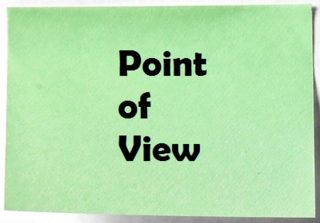 can be told from several viewpoints. When the main character narrates his experiences and observations, the author is using “first-person limited” point of view.
can be told from several viewpoints. When the main character narrates his experiences and observations, the author is using “first-person limited” point of view.
This viewpoint is autobiographical in nature. It is “limited” because the narrator only can tell what he perceives, not what other characters see, hear or think.
Consider this snippet, written to be told in first-person limited:
My back ached, and I tuned out my brother as wishing for a friend to tell my thoughts to; I had needed one ever since our father died during the last tourney a year ago, but now that Evod was head of the house, his single-mindedness in regaining our family’s pride prevented it as all we did was friggin train. For the time being, my inner ear would have to suffice. Odd how on our homeworld the males make the decisions while the females make the sacrifices.
We only know the world from the narrator’s perspective. We have no idea what Evod thinks about the narrator, his father, or their family duties except through the filter of the narrator.
There are several advantages to using first-person limited:
g Immediacy – Since the story is told as the main character makes observations, the reader in turn observes the story’s world as the same moment that the character does. This helps keep a strong flow of dramatic tension.
g Identification – This point of view typically makes identifying with the character easier for readers. They have a greater feeling of intimacy with him.
g Distinctive voice – Often a unique narrative voice is possible, which can make the story more interesting to the reader. In the above snippet, you gain a real sense of Nevar’s anger when she uses the word “friggin.” Her observation about the men making decisions and women the sacrifices also takes on a slightly more resentful tone than the original even though the exact same words are used.
g Control – The author arguably can better control flow of narrative when it is first-person limited. Because only one character’s perspective is told, the pace of what happens to that character primarily affects the story’s flow.
g Conversational – This viewpoint often sounds more conversational in tone. This allows for use of slang, jargon, and offbeat expressions, as in the novel and movie “A Clockwork Orange.”
g Awareness – This perspective sometimes is used because it allows for characters who are naïve, evil or mistaken to reveal their flaws even though they haven’t grown or changed during the story. Because the author can control the narrative flow, he can point out via the narrator’s errors in observation that a character fault exists. Readers picking up on this error find themselves contemplating if they themselves possess this fault.
Depending on the story you’re telling, first-person limited can be ill-suited. A few disadvantages of using this point of view include:
g The reliability of the narrator can be problematic – Since the narrator could be lying or distorting events, the reader may not identify with or understand that character.
g Any action not directly involving the narrator can’t be told – This can be limiting for an author, who may need to show how other characters react to an event with more depth or objectivity than the narrator’s perception of those characters can offer.
g Threats to the main character can seem less dramatic – The reader knows in advance that the narrator will survive, as a dead narrator can’t tell a story, after all.
g The main character typically can’t describe himself – When the narrator does, he runs the risk of sounding obnoxious, or the passage can appear forced.
Need an editor? Having your book, business document or academic paper proofread or edited before submitting it can prove invaluable. In an economic climate where you face heavy competition, your writing needs a second eye to give you the edge. Whether you come from a big city like Orlando, Florida, or a small town like Beer Bottle Crossing, Idaho, I can provide that second eye.
Related articles
 Be aware of which dramatic mode you're using
Be aware of which dramatic mode you're using Speed up story by curtailing dramatic narration
Speed up story by curtailing dramatic narration Select a viewpoint that gives you flexibility
Select a viewpoint that gives you flexibility
September 28, 2014
Editing client publishes sequel to popular novel
A long-time
 editing client of mine, Steven S. Sharp, has published his second novel, “The Separation.” The sequel to his novel “After Life's Hurdles & The True Winner,” Sharp’s new book continues the story of Nate Kelly, who to heal his inner pain documents a nightmarish 1978 traffic accident that takes the lives of his two best friends and high school sweetheart. Though he prays for a miracle, a decade later he still struggles to live without them. Unexplainable and eerie encounters with beings, places and objects repeatedly remind him of the haunting tragedy as he finally begins moving forward with his life. The book is available for purchase online.
editing client of mine, Steven S. Sharp, has published his second novel, “The Separation.” The sequel to his novel “After Life's Hurdles & The True Winner,” Sharp’s new book continues the story of Nate Kelly, who to heal his inner pain documents a nightmarish 1978 traffic accident that takes the lives of his two best friends and high school sweetheart. Though he prays for a miracle, a decade later he still struggles to live without them. Unexplainable and eerie encounters with beings, places and objects repeatedly remind him of the haunting tragedy as he finally begins moving forward with his life. The book is available for purchase online.
Need an editor? Having your book, business document or academic paper proofread or edited before submitting it can prove invaluable. In an economic climate where you face heavy competition, your writing needs a second eye to give you the edge. Whether you come from a big city like Charlotte, North Carolina, or a small town like Butts, Georgia, I can provide that second eye.
<A HREF="http://ws-na.amazon-adsystem.com/widg... Widgets</A>Related articles
 Editing client releases first book, 'Made This Way'
Editing client releases first book, 'Made This Way' Editing client releases first novel in four-part saga
Editing client releases first novel in four-part saga Editing client releases quest novel sequel
Editing client releases quest novel sequel Editing client releases sequel to thriller
Editing client releases sequel to thriller Editing client, Ed Wyns, publishes first novel
Editing client, Ed Wyns, publishes first novel
Five Great Quotations about Good Writing
“If you can 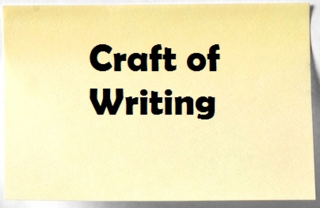 tell stories, create characters, devise incidents, and have sincerity and passion, it doesn't matter a damn how you write.” – Somerset Maugham
tell stories, create characters, devise incidents, and have sincerity and passion, it doesn't matter a damn how you write.” – Somerset Maugham
“Make him [the reader] think the evil, make him think it for himself, and you are released from weak specifications.” – Henry James
“If a writer of prose knows enough about what he is writing about he may omit things that he knows and the reader, if the writer is writing truly enough, will have a feeling of those things as strongly as though the writer had stated them. The dignity of movement of an iceberg is due to only one-eighth of it being above water. A writer who omits things because he does not know them only makes hollow places in his writing.”– Ernest Hemingway
“The main question to a novel is – did it amuse? Were you surprised at dinner coming so soon? Did you mistake eleven for ten? Were you too late to dress? and Did you sit up beyond the usual hour? If a novel produces these effects, it is good; if it does not – story, language, love, scandal itself cannot save it. It is only meant to please; and it must do that or it does nothing.” – Sydney Smith
“You have to write the book that wants to be written. And if the book will be too difficult for grown-ups, then you write it for children.” ― Madeleine L'Engle
Need an editor? Having your book, business document or academic paper proofread or edited before submitting it can prove invaluable. In an economic climate where you face heavy competition, your writing needs a second eye to give you the edge. Whether you come from a big city like Dallas, Texas, or if you come from a small town Why, Arizona, I can provide that second eye.
<A HREF="http://ws-na.amazon-adsystem.com/widg... Widgets</A>Related articles
 Five Great Quotations about Why We Must Write
Five Great Quotations about Why We Must Write Five Great Quotations about Characters
Five Great Quotations about Characters Five Great Quotations about Readers
Five Great Quotations about Readers
September 27, 2014
Every moment offers a great opportunity to write
A passionate 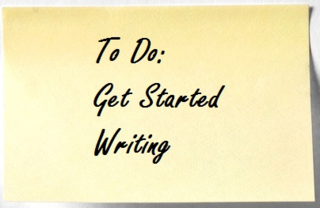 writer never can be bored. Every location and situation offers an opportunity to write.
writer never can be bored. Every location and situation offers an opportunity to write.
Writing is largely an internal, in-your-head activity, after all. It involves your imagination and creativity, which really are nothing more than combining your memories and thoughts in interesting ways to create new ideas or to better understand yourself and the world. No matter your setting, you can create and therefore write.
Whenever you a have a free moment, no matter where you are, there are many writing activities you can engage in. You might outline your next story; if you already have an outline, go more in-depth with a beat-by-beat listing of what will occur in the next scene. You might continue working on your draft. If you have an Internet connection, you might research a process or facts that appear in your book.
Combine being present with your creativity, and your ability to write at any given moment will soar. By being present, you engage your setting through taking in its sights, sounds, smells, tastes and how it physically touches you. For example, if in a coffee shop, you might see a customer standing in line with arms folded, hear her tapping her foot as she waits for the busy barista to take her order, smell her expensive perfume indicating she is not a person accustomed to waiting for someone else, sense the growing heat of her anger as her foot tapping picks up its pace. In this instance, by simply being aware of your surroundings you’ve observed – and with your creativity can write a passage about – impatience.
By being present, even if not working on your current book, you can practice writing by penning passages that can be used in a later manuscript. Or you night simply do some journaling, in which you describe a scene or a person in that landscape, or simply ponder an idea.
Need an editor? Having your book, business document or academic paper proofread or edited before submitting it can prove invaluable. In an economic climate where you face heavy competition, your writing needs a second eye to give you the edge. Whether you come from a big city like Sacramento, California, or a small town like Intercourse, Pennsylvania, I can provide that second eye.
<A HREF="http://ws-na.amazon-adsystem.com/widg... Widgets</A>Related articles
 Don't rely on inspiration to carry your story
Don't rely on inspiration to carry your story Self-discipline to write a daily a must
Self-discipline to write a daily a must



